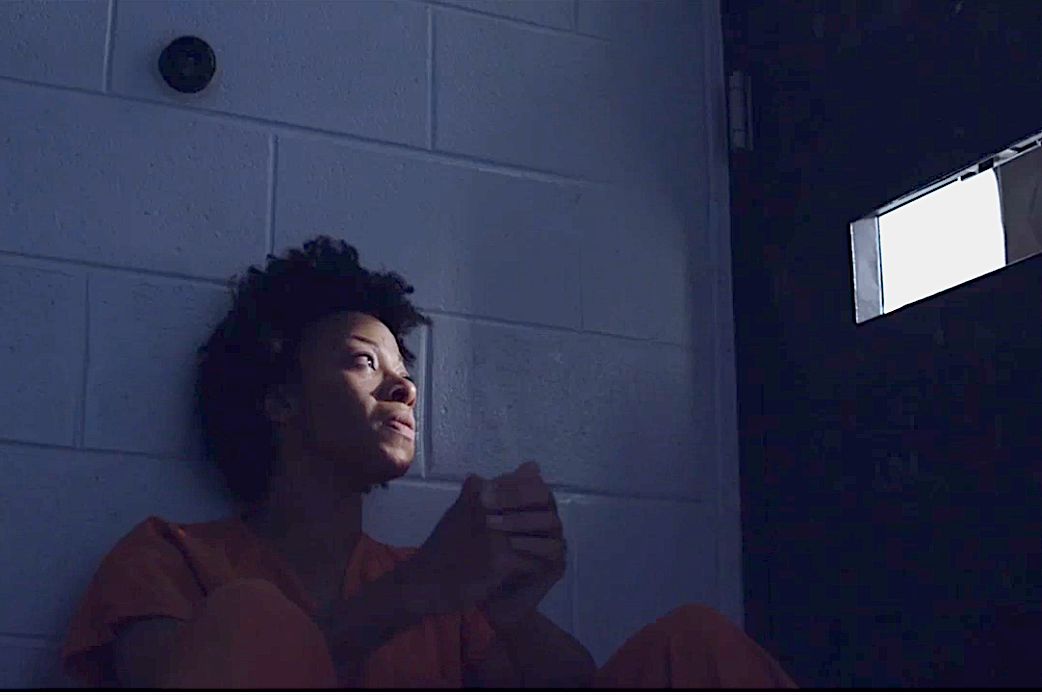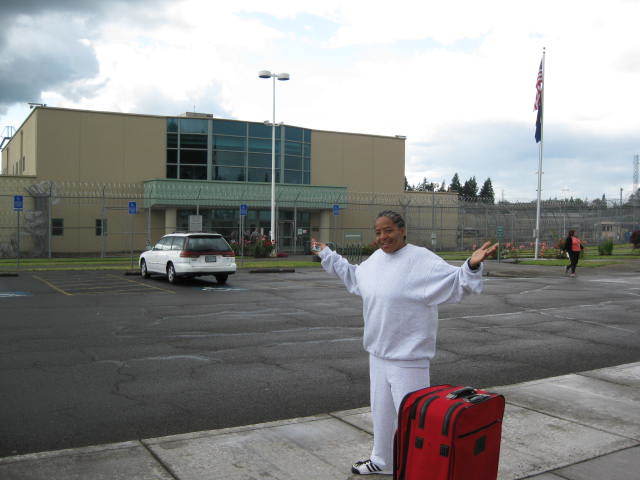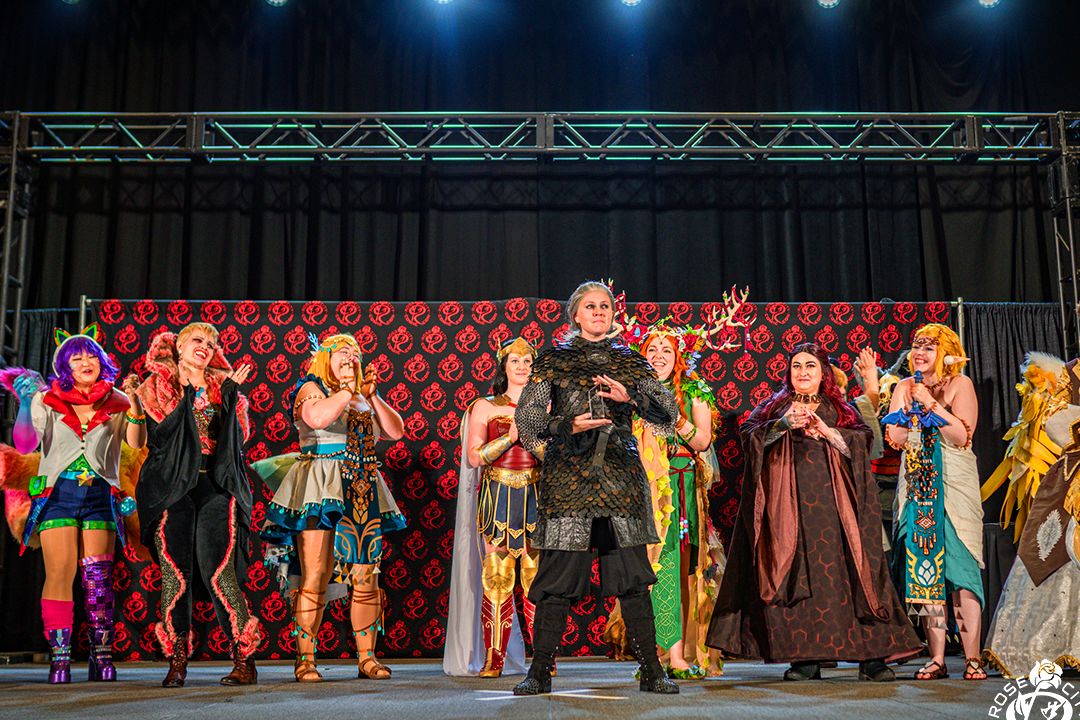This Portland Woman Spent 12 Years in Prison—for a Murder She Didn't Commit

A still from TV One's Evidence of Innocence dramatizing Lisa Roberts's time behind bars
Image: Courtesy TV One
Here's a terrible fact: African Americans are disproportionately more likely to be convicted of crimes they didn't commit, according to a report by the University of Michigan's National Registry of Exonerations. And a new true crime series, Evidence of Innocence (which debuted on TV One on June 4) aims to tell the stories of imprisoned Americans who were later exonerated. Launching the series: the story of Portlander Lisa Roberts, in an episode hosted by noted civil rights attorney Benjamin Crump—known for representing Trayvon Martin's family after Martin was shot to death while unarmed by George Zimmerman.
A primer: In 2002, Roberts was incarcerated for nearly 12 years at Wilsonville's Coffee Creek Correctional Facility, convicted of the brutal murder of her lover, Jerri Lee Williams, in Kelley Point Park. At the time, Roberts’ lawyer, William Brennan, encouraged her to take the plea deal for manslaughter or risk being jailed for life. On several occasions, Roberts says she asked Brennan to file for an appeal to overturn her conviction, who repeatedly discouraged her from doing so. But after nearly six years behind bars, a fellow inmate urged Roberts to renew the fight. In 2008, her case landed on the desk of a federal public defender named Alison Clark, whose pitbull investigative team worked to dismantle the case over the next six years. On May 28, 2014, Roberts was released from prison. We asked her to reflect on her experience.
What do you think of the documentary?
It was a bittersweet for me, you know? There were parts in it I had never seen before, like crime scene photos. My lawyers held that from me and I never wanted to see it. I had no desire to see it. It just brought up a lot of emotion. But they didn’t leave out anything. A lot of my nieces and nephews watched it. My third oldest niece called me crying, and she’s like, “Oh my god, Auntie, I didn’t know all that had went on, I didn’t know. You explained it to me but I really didn’t comprehend.” A lady that was a best friend of my sisters watched it and she got in touch with me and was crying. She’s like, “You have amazing strength and you’re an amazing person and just keep on with who you are.”

The real Lisa Roberts, released from Coffee Creek
Image: TV One
How did you feel watching it?
Well, watching that it just brought up the whole thing all over again. You know it's something I suppressed in the back of my mind. I know it happened but I try my best not to think about it. All the things I’d gone through, being locked up, it’s just really, really emotional. It was all bad.
Did the other inmates believe you when you said you were innocent?
The other inmates, they don’t care whether you are or you aren’t—either you get along or you don’t. There were some people that believed me, there were some people that worked at the prison that believed me, and some of the church people believed me. It didn’t make a difference who believed me or not. It’s what I know. And I had my family behind me—and that, you know, that was the main thing.
Your family supported you…
Yes. Phone calls, letters, pictures, everybody keeping me up to date on everything. Everybody telling me to keep my head up, be strong. You gotta do what you gotta do.
Did you ever lose hope?
That’s kinda hard to explain. Sometimes I would. Especially with the the first judge we had, who kept denying, kept denying. My lawyers [Clark's team] fought for me for six years. You’re kinda in limbo, you know? Is somebody gonna believe me, are my lawyers just gonna give up? I talked with that back in forth in my head. They kept me up to date and I was like, “OK, I'mma pick myself back up, because they’re believing in me and they’re still out there fighting.” That gave me a more hope than anything before.
What was it like when you finally got the good news?
When you’re in prison, everything moves slow. I was excited, I was nervous, but I wanted to get the hell out of there! Excuse my French. You know, it’s like probably being a graduate from high school and you’re about to hit the real world. It’s a little bit more exciting than that and it’s also scary. Because things, when I got out, they had changed so much.
What had changed?
People had changed, technology had changed, phones had changed. When I went in I had a push button cell phone and it was so compact it looked like the one from Star Trek. When [I first saw a new phone] I didn’t even know how to turn it on, much less dial. I mean, you see things on TV, but when it’s there in your face it’s totally different. When they dialed it for me, I didn’t even know where to listen or talk into.
What is life like for you now?
I’m just working my butt off. I have two pitbulls. I can’t say I can go back to where I was, you know? Because back then I worked at Camp Withycombe, I was comfortable. I had a house. I had a car, a truck, and a motorcycle. Now I just have a car and an apartment. But the main thing is, I’m living my life as a free person with nothing over my head—nothing. I have no bitterness about anything, you know? I just feel disrespected. I have no hardship towards the DA that was the head of the case, my lawyer that was supposed to defend, or the detectives. But I know more now than I did then. So I watch, and I listen, and I question the law.




